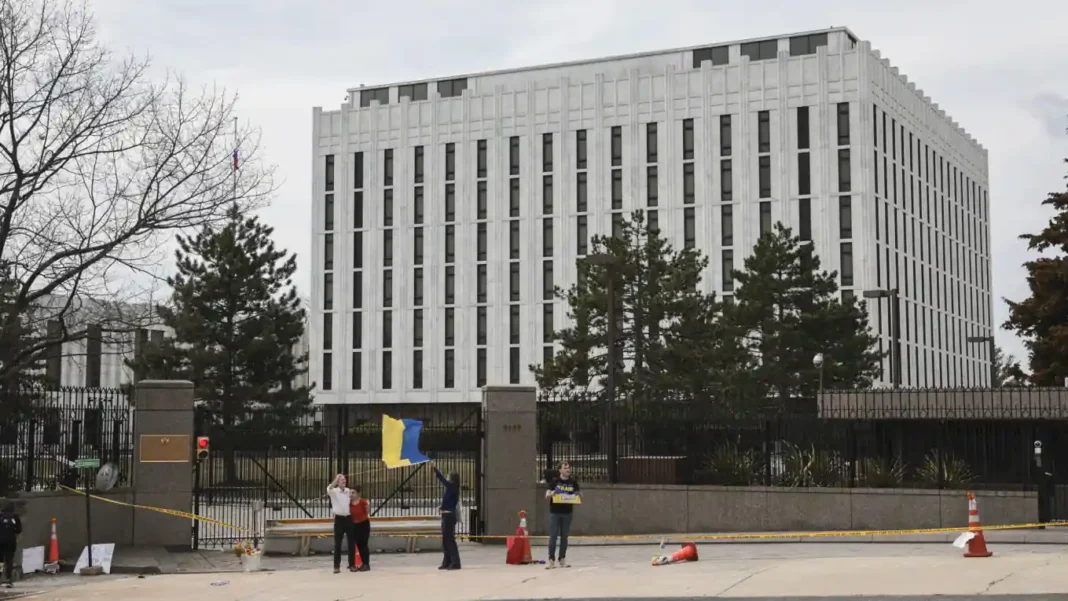In a swift response to U.S. accusations, Russia on Saturday rejected claims by Washington that it was behind a fabricated video purportedly showing a Haitian immigrant falsely claiming to have voted multiple times in the U.S. election.
The 20-second clip, allegedly part of Moscow’s broader campaign to undermine confidence in the electoral process, was denounced by Russian officials as “baseless.”
The video, which surfaced online earlier in the week, features a man delivering a message in a stilted and unnatural tone.
“We are from Haiti. We came to America six months ago, and we already have our American citizenship – we’re voting Kamala Harris,” he says in the clip. U.S. officials contend the video was intended to sow doubt about the integrity of the U.S. election system.
On Friday, a joint statement from three American intelligence agencies indicated “Russian influence actors” were responsible for the video, which they characterized as a clear example of targeted disinformation.
The agencies also noted that Russian actors were behind another falsified video, although they refrained from providing specific details on its contents or dissemination.
Georgia Secretary of State Brad Raffensperger, whose state holds considerable sway in national elections, weighed in on the video’s origins on Friday. Raffensperger described the video as “obviously fake” and pointed to “Russian troll farms” as likely creators.
“This type of targeted disinformation is a serious threat to election integrity, especially in a swing state like Georgia,” he remarked, underscoring the gravity of foreign interference.
In response, the Russian embassy in Washington issued a statement on Telegram dismissing the allegations as groundless.
“We have noticed the statement of the U.S. intelligence services accusing our country of disseminating fabricated videos about electoral violations in the United States. We view these allegations as baseless,” the embassy declared.
In a broader defense, the embassy contended that no evidence had been provided to substantiate these claims, despite ongoing communications with American officials.
“Russia has not received any proof for these claims during its communications with U.S. officials,” the embassy stated. The Russian foreign ministry, which also released a version of the statement, echoed the embassy’s assertions.
“As President Vladimir Putin has repeatedly stressed, we respect the will of the American people,” the ministry’s statement read. “All insinuations about ‘Russian machinations’ are malicious slander.”
Russia’s denial comes amid heightened concerns within the U.S. over foreign interference in its democratic processes. Since the 2016 election, U.S. intelligence agencies have issued periodic warnings about foreign attempts to manipulate public opinion and undermine electoral systems.
The recent allegations mark another chapter in the tense relationship between Moscow and Washington, with each side often accusing the other of orchestrating propaganda and interference campaigns.
American intelligence agencies have urged caution among the public, particularly with the spread of misinformation on social media platforms. This latest dispute underscores the challenges of combatting disinformation and preserving election integrity, especially with emerging technological tactics that can make falsehoods appear credible.
As U.S. officials continue to investigate and counter disinformation efforts, the Russian government remains adamant in rejecting allegations of involvement.
However, with electoral processes increasingly vulnerable to digital interference, concerns persist over how nations can safeguard the integrity of their democratic institutions in an era where influence campaigns are increasingly sophisticated and pervasive.
This article was created using automation technology and was thoroughly edited and fact-checked by one of our editorial staff members



